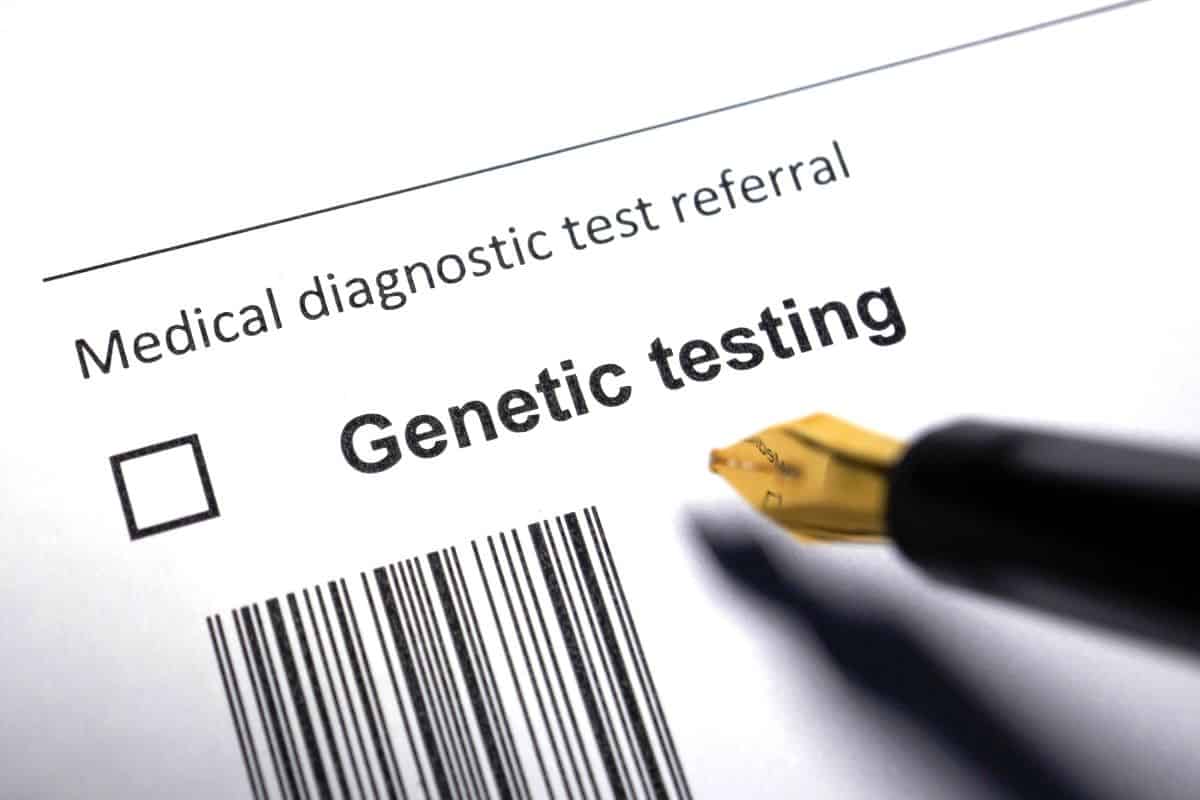Can genetic testing be covered?
Many people with Medicare will wonder what exactly it covers and that is totally understandable. In an ideal world, we wouldn’t need to use their plans, but it doesn’t always pan out that way.
If you have a need for something specific like genetic testing, you might be asking yourself if you can use Medicare to cover part of, or all, of the costs associated with it.
This guide will look into that in much more detail. So, read on for more!

Table of contents
What is Medicare?
In short, Medicare is a Federal health insurance program. Most people that can take advantage of their plans are normally:
- 65 or older
- Those with kidney disease which need a constant dialysis
- Young people with certain disabilities
There are three aspects to Medicare which are part A, B and D. They all cover different things.
Part A covers inpatient care, inpatient hospital stays, hospice care and other hospital related care.
Then, Part B covers things like outpatient doctors, preventative care, medicine and other medical supplies.
Finally, Part D covers things like prescription drugs which includes vaccinations and other shots.
What Exactly is Genetic Testing Anyway?
Genetic testing is a specific type of test that looks at seeking out genetic changes, mutations or alterations in proteins or chromosomes.
What’s the Benefits of Having this Test?
The main advantage of genetic testing is that you can rule out the possibilities of passing on “bad” or altered genes onto your potential offspring, or be able to inform them that they have the possibilities of having a specific type of cancer, for example.
It’s mainly about gathering information for yourself and your family, possibly as a preventative measure for your children, but it can also be useful for research purposes.
Everything should be outlined to you before you attend genetic testing by your approved genetic counsellor anyway. If you have further questions, you should raise it with them and always speak with your family.
Are there Downsides to Genetic Testing?
Of course nothing is without its drawbacks. Whilst genetic testing can be significant and very useful, some people would prefer not to have it done.
This is either because of the large costs often included with this type of medical treatment, but also because they are unhappy with other people knowing their medical conditions.
This type of thinking, whilst it is a free choice, can often be dangerous. If you are concerned about who your medical data may be shared with, always speak with your doctor for clarification.
Additionally, there is a risk of genetic discrimation if this data is available to certain people such as prospective employers, so it is always important to know where you stand when it comes to genetic testing.
Therefore, make sure you ask as many questions as possible if you are eligible for genetic testing.

So, Does Medicare Cover Genetic Testing?
Yes and no. It’s not as simple as that unfortunately. There are specific times and situations when Medicare will cover genetic testing.
It will cover genetic testing if people have received a cancer diagnosis and doctors believe that more testing, such as genetic testing, is necessary for inherited genetic mutations.
Within this guideline, there are still quite specific criteria where Medicare will cover genetic testing. First, you need to have already received a cancer diagnosis.
If you have received a cancer diagnosis, Medicare might be able to help with some of their policies, but your location may also play a role in this.
MACS or Medicare Administrative Contractors are the ones that provide the Medicare aid in certain locations, so you would need to be aware of where they are and what they do.
BRCA Mutations
Medicare could potentially assist those that need a genetic test for BRCA mutations. Those that may benefit from this testing may include:
- Those with ovarian, primary peritoneal or fallopian tube cancer
- Women aged 45 to 50 who have received a breast cancer diagnosis
- Women who have received a triple negative breast cancer diagnosis before they have reached 60
- Those with a family heritage of Ashkenazi Judaism that have received a breast cancer diagnosis
- Men that have received breast cancer diagnoses
- Those with a specific type of prostate cancer
- Those with pancreatic cancer #
- Those that have a family history with a type of BRCA mutation cancer
Locations
All of the state medicare programs can cover these genetic mutation tests, which is a slight change to Medicaid.
Medicaid offers all, except for two will cover the majority of the above for BRCA mutation genetic testing.
Alabama does not do any of these tests and Rhode Island is notoriously difficult to receive genetic testing, with only around 10% of people being able to access the treatment.
However, if you have Lynch syndrome, it may be more difficult than this too. Lynch syndrome is not widely tested for, and the following states do not allow testing through Medicaid.
- Alabama
- Rhode Island
- Delaware
- North Carolina
- Nevada
There are also several questions when it comes to other states, but these above states absolutely are a no go.
Lynch Syndrome
Testing for Lynch syndrome can be offered in certain states but the criteria can become complicated.
Those with a Lynch syndrome related mutation and those with a family history of the condition may be allowed for coverage on Medicare.
Speaking of Medicaid, they do not offer a multigene panel test, which involves doctors looking at specific inherited mutations which are in more than one gene at a time.
This is a problem with people with Lynch syndrome or those with genetic mutations that go beyond BRCA 1 and 2.
The Bottom Line
Medicare can offer genetic testing but it does not offer them in all settings. To get clear information about what they do offer, speak with your doctor or Medicare representative.
Frequently Asked Questions
For some people, the answer is clearly yes. When performed accurately, genetic tests can uncover a disease or a tendency to develop certain conditions, and it can lead to close relatives getting tested as well. Preventive measures or treatment can be lifesaving.
The aptly named AncestryDNA test stood out as the best DNA testing kit because it presents test results in a clearer manner than other services and places the ancestry information it provides in a useful historical context.
Genetic testing is useful in many areas of medicine and can change the medical care you or your family member receives. For example, genetic testing can provide a diagnosis for a genetic condition such as Fragile X or information about your risk to develop cancer. There are many different kinds of genetic tests.
